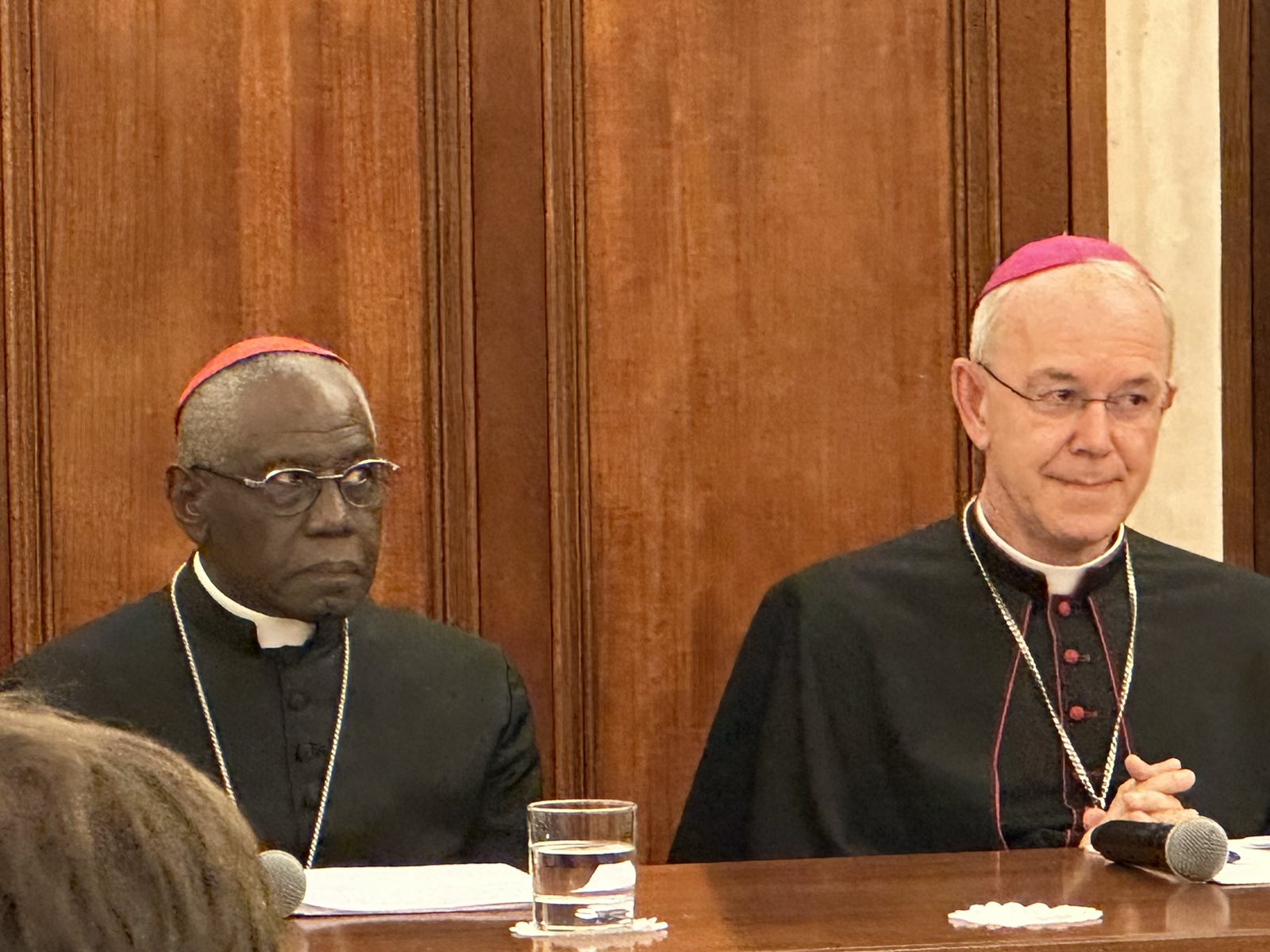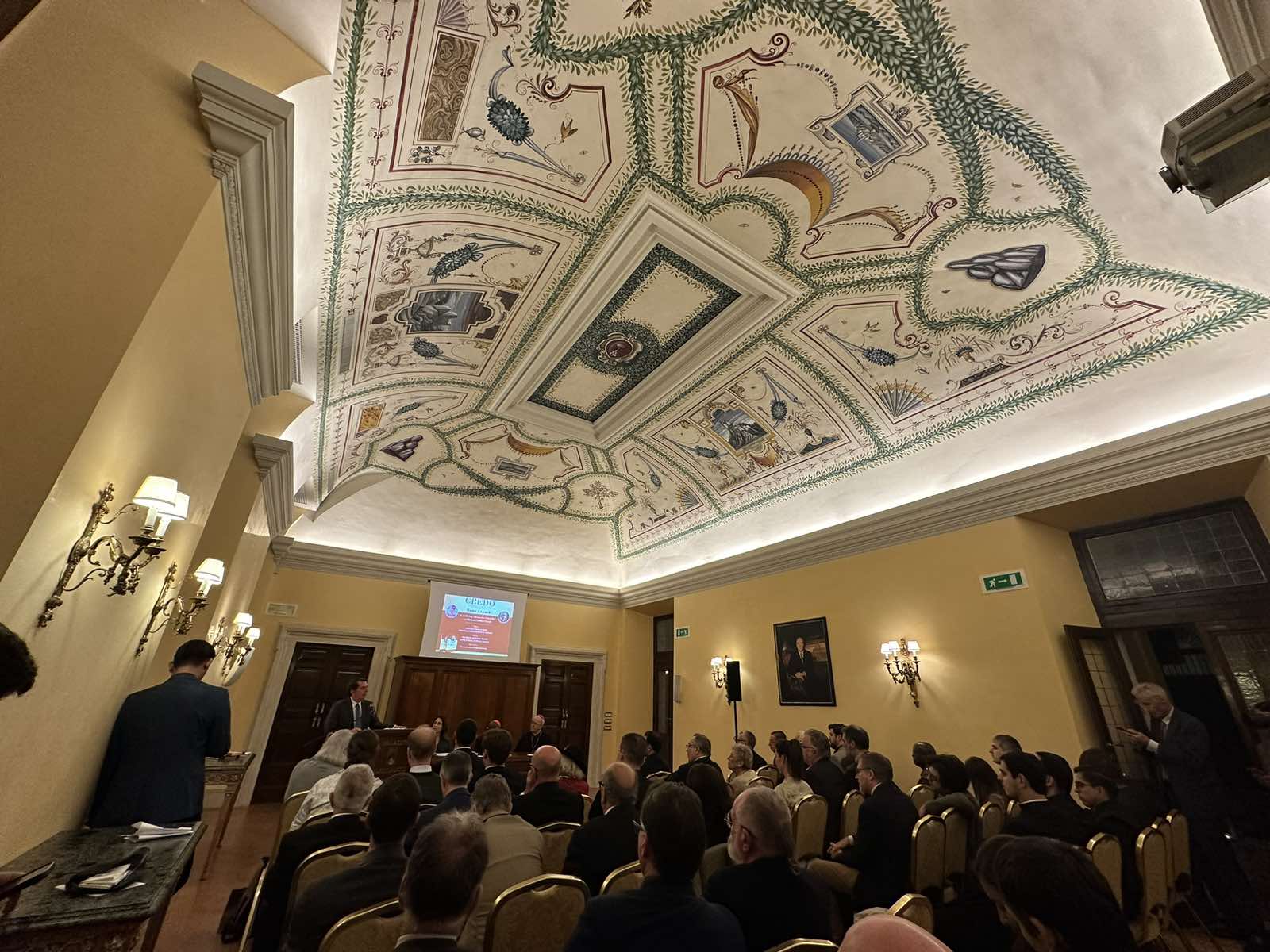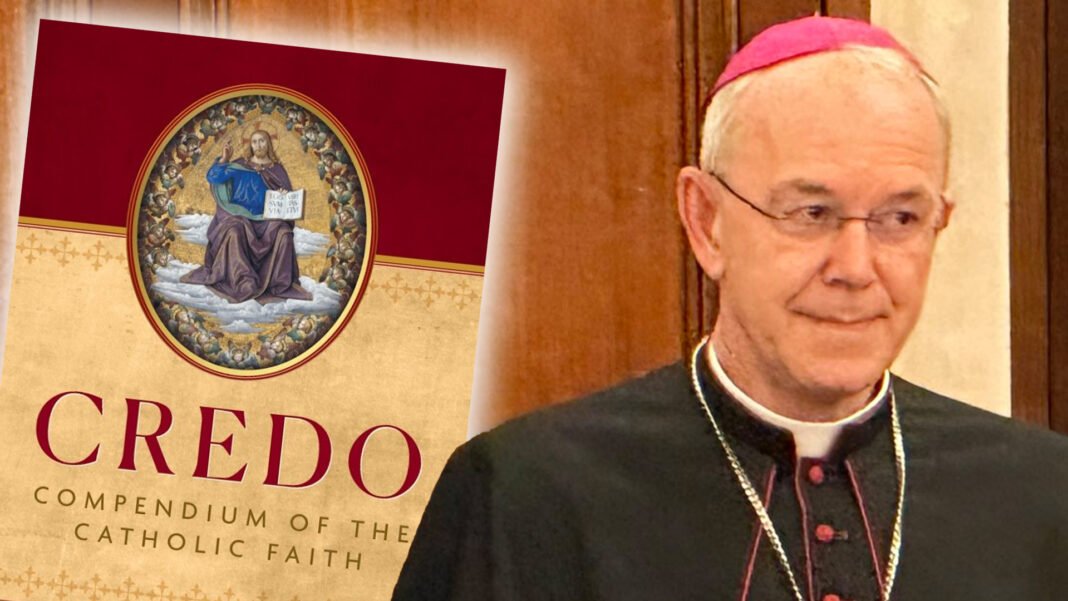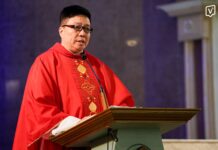A KAZAKHSTAN prelate, a critic of the “Synod on Synodality” and a recent UST visitor, published an extensive catechism at the close of the Rome meeting.
Bishop Athanasius Schneider addressed “widespread doctrinal confusion” perplexing some Catholics in his book “Credo: Compendium of the Catholic Faith,” launched on Oct. 26 at the historic Palazzo Cesi-Armellini hall in the Vatican.
Written in a question-and-answer format, the book is a response to some of the biggest issues hounding the Catholic Church and modern society.
“I offer this work […] to strengthen them (the faithful) in their faith and serve as a guide to the changeless teaching of the Church,” he wrote. “Mindful of the episcopal duty to be a ‘nurturer of the Catholic and apostolic Faith’ as stated in the Canon of the Mass, I also wish to bear public witness to the continuity and integrity of the Catholic and apostolic doctrine.”

The bishop labeled calls to admit women in the diaconate, part of the agenda at the synod, as a “denigration of the unique dignity of Christian womanhood.” He argued that each sex has a “specific mission” that, if violated, would “oppose its divinely established order.”
Groups have been urging the Church to open its doors for female leadership. The Austrian group Women’s Ordination Nationwide told the British newspaper The Guardian that female deacons would help alleviate the lack of priests in the communities.
And despite plans to extend outreach to Catholics who are part of the gay community, Schneider urged the faithful to reject gender ideology because of its “kind of Gnostic and ultimately Satanic dualism.”
But a majority of the faithful in predominantly Catholic countries voiced support for accepting homosexuals in society, according to a 2020 poll by the Pew Research Center, including Spain (91 percent), the Philippines (80 percent) and Mexico (72 percent).
Schneider, the auxiliary bishop of the Archdiocese of Mary Most Holy in Kazakhstan’s capital of Astana, also lambasted the recreational use of marijuana and the availability of abortion vaccines such as Carboprost – both of which have wide access in most Western countries.
Marijuana, according to the bishop, may only be used for medical purposes because its recreational use constitutes a “sin of intoxication.”
While abortion products aid “abominable crimes of child murder and organ theft,” said Schneider.
“The knowing use of such products involves the grave omission of a firm and public protest against such evils, rendering our principled rejection of them ineffective and unconvincing in practice; and conscious consumption of the products of these inhuman ‘industries’ gives the appearance of complicity in these evils,” he wrote.

“Credo” also touches on a variety of topics, including the Church’s relationship with Islam, social media and digitalization, vaccines, pornography and globalism, among others.
The book was published by American-based Sophia Institute Press.
In June, Schneider slammed the contents of the synod working document “Instrumentum Laboris,” warning that the synodal church would undermine the Church as a whole.
“It substitutes the One, Holy, Catholic and Apostolic Church with a fantasy ‘synodal church’ that is worldly, bureaucratic, anthropocentric, neo-Pelagian, and hierarchically and doctrinally vague – all the while masking these features behind unctuous expressions such as ‘conversation in the spirit,’” he wrote for The Catholic Thing.
The Kazakh prelate visited the Philippines in March to offer the Traditional Latin Mass in traditionalist communities.
Schneider was one of the 20 delegates of the Federation of the Asian Bishops’ Conference who visited UST in 2009. Justin Benedict T. Lim













